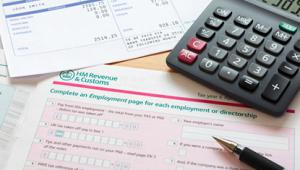02 June 2006
Scottish business leaders have given cautious backing to a proposal to hand a share of income tax, corporation tax and VAT directly to the Scottish Executive rather than to the Treasury in London.
CBI Scotland believes the idea is worthy of consideration, although it stresses that the arguments are 'finely balanced' and that the organisation would need to be convinced that such an arrangement would benefit Scotland's long-term economy.
The assigned tax revenue suggestion has been floated in a policy review paper that has been backed by CBI Scotland's governing council.
If the proposal were to be introduced, it would result in a radical change to the current arrangements, under which all tax receipts raised in Scotland go to the Treasury and the UK government then allocates a block grant to the Scottish Executive.
It would mean that part of the block grant would be withheld and the shortfall made up from Scottish taxpayers, including companies.
There would be no increase in taxation rates but if the change boosted economic growth, the increase in tax revenue would be retained by the Executive.
But public finance expert Arthur Midwinter, visiting professor at the Institute of Public Accounting at Edinburgh University, has warned that the plan is 'unstable,' that it could result in a loss of revenue and that it would be unlikely to bring economic growth.
He pointed out that Scotland currently received more for its expenditure than it raised in taxation, mainly as a result of the Barnett Formula. The assigned revenues proposal would mean a loss of resources.
'I would also be extremely sceptical that the Executive would be able to target resources in such a way that it would be able to encourage economic growth,' Midwinter told Public Finance.
CBI Scotland's review paper says assigning some tax revenues to the Executive, either in whole or on a shared basis with the UK government, might offer some advantages, including encouraging the Executive and members of the Scottish Parliament to produce policies that align with the need to raise the long-term growth rate of Scotland's economy.
But it adds that if the UK government were to bring forward such a proposal, CBI Scotland would need to be convinced that it would improve Scotland's economic and business environment.
PFjun2006



















